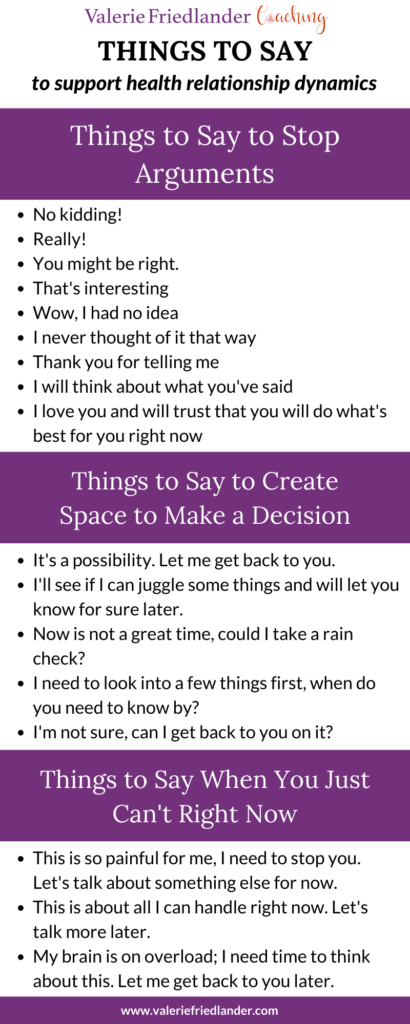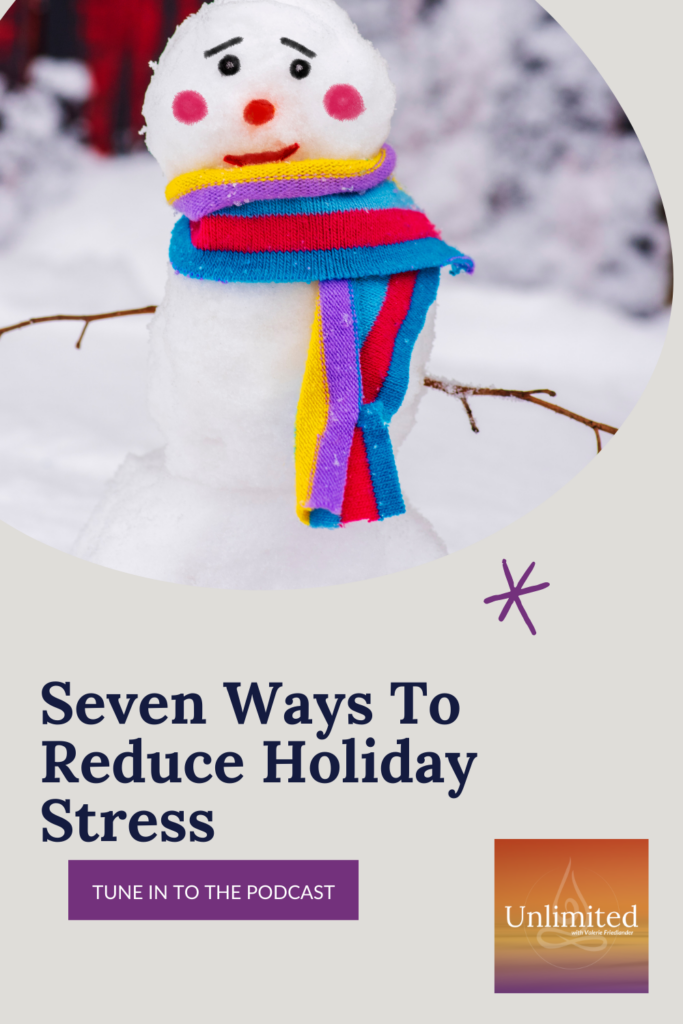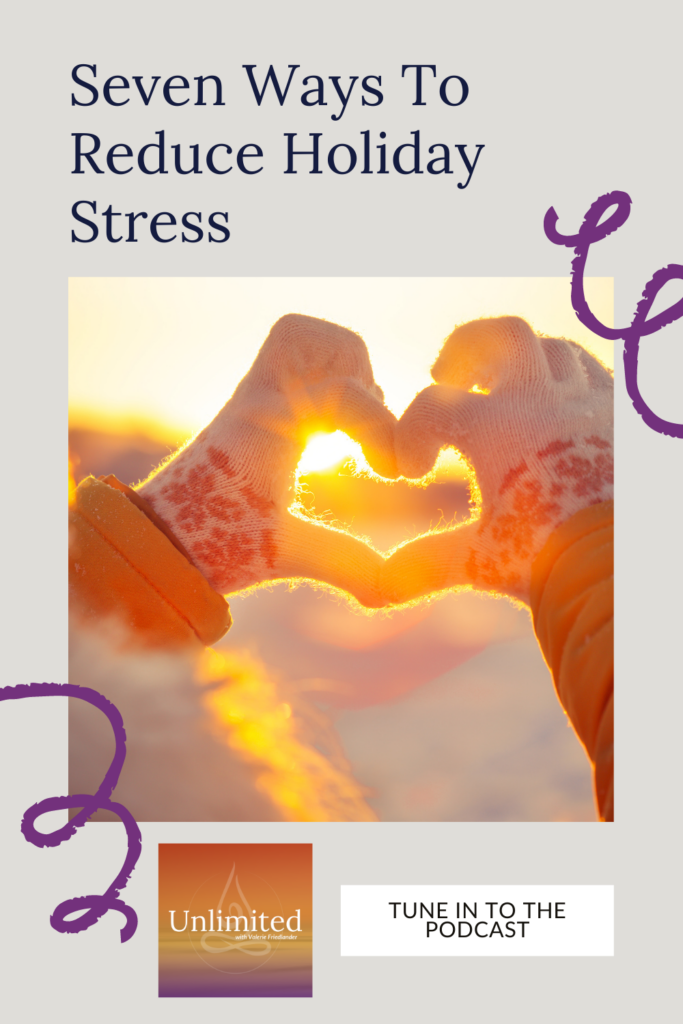Seven Ways to Reduce Holiday Stress
Seven ways to reduce holiday stress and really stress in your life in general is the theme for this bonus episode! Despite the joyful intention of the season, many life stressors expand this time of year. Stressors such as time, money, and family dynamics. Throw in a dose of inclement weather and you can suddenly find you’ve flipped from the warm and cozy person you want to be, to a cold and prickly “just get through it” kind of you.
In this episode of Unlimited, I share some of ways you can reduce your stress this season.
Some of what I talk about in this episode includes:
- How our stress triggers intersect
- Navigating expectations and perfectionism
- Clarifying and supporting your values this time of year
- Intentional engagement of time and money
- Building emotional resiliency and releasing stress
- Creating a self-support plan for gatherings
Stay tuned for when Unlimited comes back with Season 2 in January!
If you found this episode helpful, please share it!
You can tag me on social: @unlimitedcoachval
Want to share your thoughts or have questions? Send me a message! I love to hear from you. You can email me at valerie@valeriefriedlander.com or DM me on Instagram
After sharing this episode, I explored the topic further in social and wrote out some additional thoughts on each suggestion to help you reduce stress.
- Define your values: This is the foundation for all the others. We tend to overcomplicate things that feel big because our brains think that if it feels big, it must BE big, so then we prove ourselves right by making it big. Not to mention we’ve been conditioned to believe that everything important takes hard work. It doesn’t. Bottom-line, bringing the magic is probably WAY simpler than it feels. So, take it out of the feeling zone and intentionally explore what really matters to you when it comes to this season and the people you’re interacting with. Consider how YOU want to show up and what will help you do that. (Note: This is different than trying to get other people to behave differently… I note it because I know it. 😉)
- Clarify your budget: When we’re bombarded with consumer culture and scarcity marketing, it’s tempting to just spend and deal with it later. This ultimately means more stress and less “magic” in the season. Expressing love and sharing joy are usually less complicated and financially dependent as it can feel, thanks to all that noise. Budgeting may feel initially stressful and like a mood killer but conscious choices will almost always lead to more holistically loving (and ultimately less stressful) outcomes.
- Allocate your time: Anyone else tend to “sneak” time? (Otherwise known as trying to fit the things you want/need to do in the spaces between what other people want to do.) I don’t know about you but doing this pretty much always backfires on me. Other people get annoyed when I’ve just disappeared, and I get irritable that I’m not getting to things that are important to me. Not to mention it affirms that people will get annoyed when I take time for myself, except what they’re mostly annoyed about is that they didn’t know I was going to take that time. You’re allowed to take time. Be reasonable with yourself and say what you need – set those expectations.
- Clear communication: Oh, weren’t we just talking about this? This is the part where you get honest with yourself about what you need (ya know, based in those values from #1). Then you trust that doing what you need to do to support yourself being the person you want to be will have a positive ripple effect (even if people don’t like it right away). You take that clear communication with yourself into communication with anyone else impacted by your decisions. Depending on level of trust with them, it can be a conversation about how to best coordinate or it can be simply saying “I’m available at this time for such and such activity.” Clear communication allows other people the dignity to make informed decisions.
- Don’t take things personally: What other people say is about them and what you hear is about you (and vice versa). Your brain is a filter. Their brain is a filter. The filters are composed of everything that’s ever happened in their life (and sometimes even before it) up until now. How they chose to engage says more about what’s going on with them than it does about you. Likewise, no one can push a button you don’t have – so, consider your buttons. What can you learn? Are you out of alignment with your values? Is there something you’d like to do differently? These are things you have power in. Allow people to be where they are. It’s not all about you.
- Assume good intent: This one can be a little tricky, so I will first say that it is NOT about accepting unacceptable behavior. This one is aimed to keep you out of story-telling rabbit holes. What I mean by that is, our brains tend toward negative assumptions. So, without intentional focus, your brain will spin a story about the perceived danger. Yet most people aren’t actually trying to hurt you. (Could be that you have different communication styles or love languages or stress languages, etc.) Focusing on an assumed good intent helps balance out that negative tendency. This helps you to be curious about what’s really going on and make decisions based on what you need vs making reactive decisions to get someone else to behave differently. Impact matters more than intent, so boundary setting is key. However, you want boundaries based on values vs boundaries based on assumptions.
- Have a plan to support yourself: Identify ways you can support yourself being the person you want to be in whatever situation you’re in or with whoever you’ll be with. Do this ahead of time because your creative brain turns off when you get triggered and you’re go right to reactive mode. If you have a plan in place, you can automatically turn to that to help you navigate in an aligned way. Also, you reduce the space for triggers when you’ve created more space for supports. Consider things like having a way out of a conversation or situation, such as an excuse (“I’ve really got to use the bathroom, let’s come back to this later.”) or phrases to diffuse (“I will think on what you’ve said.”) Know what helps you release stress (Have you taken my stress release quiz yet? If not, that can help you both find your stress release and help you take things less personally, which is common when other people process stress differently). Finally, have some self-care plans that support you physically, mentally, emotionally, and spiritually. Even a little care can go a long way to reducing the stress of reactivity.
If you’re looking at all of these and thinking it sounds great but you really aren’t sure how to apply it to your own situation, well, that’s what I’m here for.
These are general strategies but YOU are unique, so it’s normal to need a personalized approach (especially during a time with so many triggers!)
If you’d like, you can book a private coaching session and we’ll create a personalized plan based on you and the dynamics in your life.
Think you might want several sessions to really dig in and create bigger shifts into 2022?
Book a free exploration call to see if we’re a good fit for more intensive work.
LINKS REFERENCED IN THIS EPISODE:
Episode 4 Setting Holiday Boundaries
Episode 3 Understanding Your Stress Language

(Many of these suggestions came from an uncredited list given to me years ago by someone at an Alanon Meeting.)
CONNECT WITH VALERIE:
Facebook
Instagram
Get email updates!
Work with Valerie!




